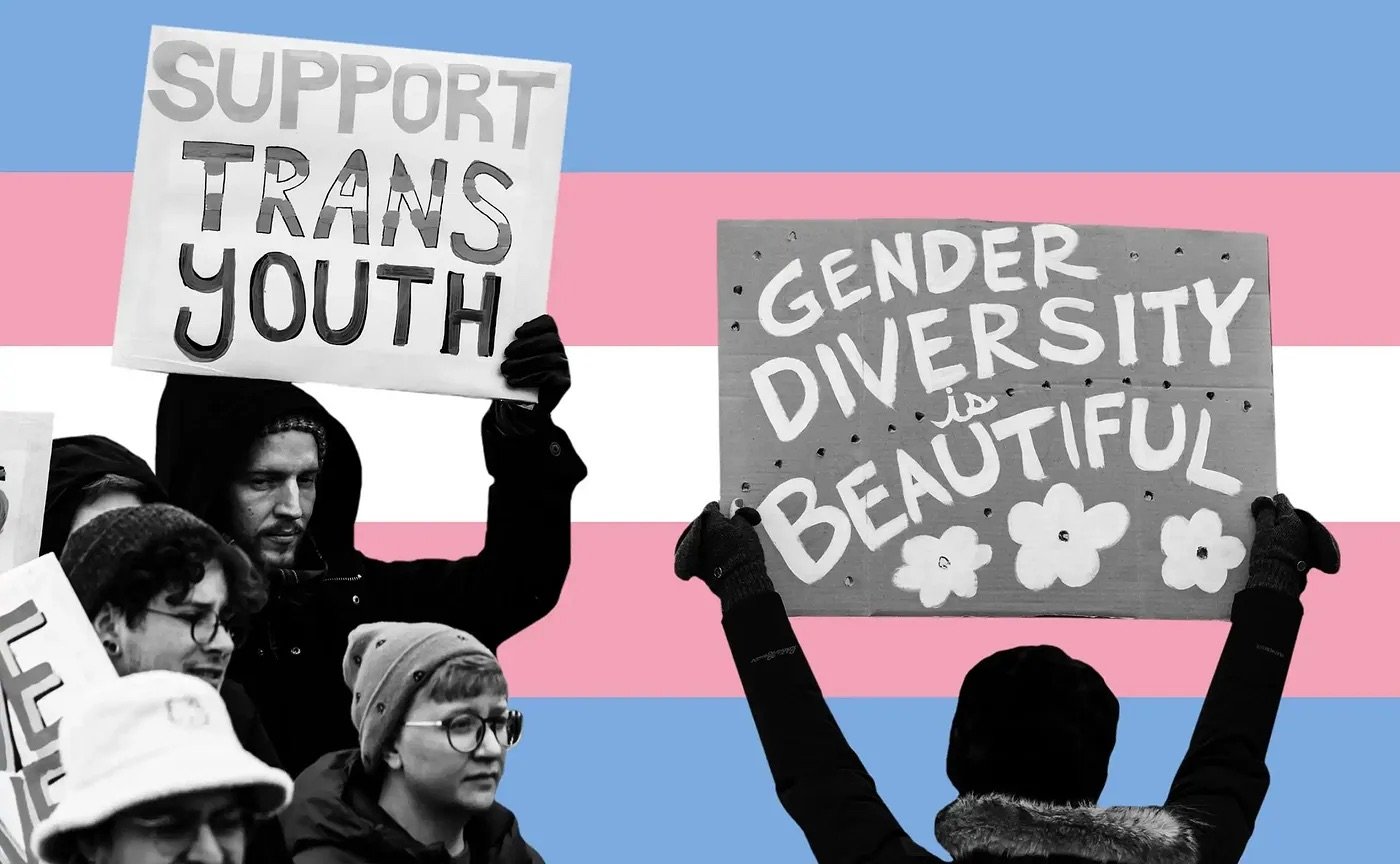K.C. v. Medical Licensing Board of Indiana
Seventh Circuit Court of Appeals
On appeal from the Southern District of Indiana
Case No. 1:23-cv-00595-JPH-KMB (Dist. Ct.)
Case No. 23-2366 (7th Cir.)
STATUS: ONGOING
Case Information
FROM ACLU.ORG:In April 2023, Indiana passed SB 480 into law, prohibiting health care professionals from providing or even referring transgender people under 18 for gender-affirming health care. This care is broadly supported by medical organizations and laws like SB 480 are opposed by the American Medical Association, the American Psychological Association, and the American Academy of Pediatrics.
On April 5, 2023, the ACLU and the ACLU of Indiana filed a lawsuit on behalf of four Hoosier families with transgender youth and Dr. Catherine Bast, medical director at Mosaic Health & Healing Arts. The plaintiff families will be denied the gender-affirming care their children are currently receiving, as well as future care, if Senate Bill 480 is allowed to take effect on July 1, 2023.
The lawsuit, first filed in U.S. District Court in the Southern District of Indiana, alleges that Senate Bill 480 violates the U.S. Constitution on multiple fronts, including the Equal Protection Clause of the Fourteenth Amendment. In addition, the lawsuit claims that the law violates the federal requirements of the Medicaid Act and the Affordable Care Act, because it prohibits essential medical services that would otherwise be authorized and reimbursed by Medicaid.
Two of the parent-plaintiffs, Beth and Nathanial Clawson, note that their plaintiff daughter, currently 10 years old, is fearful about what will happen to her if she cannot get gender-affirming medical care when puberty begins.
“Starting around the age of two years old, our daughter began telling us who she is,” said Beth Clawson. “When she was three-and-a-half years old, after researching gender dysphoria and consulting with both her therapist and pediatrician, she socially transitioned. That means we started using she/her pronouns and letting her dress as a girl. That was seven years ago, and she hasn’t wavered at all in knowing who she is.”
“As her parents, the most important thing to us is that she knows that we love her, trust her, and will do whatever it takes to ensure that she has every opportunity to grow and develop as her true self regardless of her gender identity,” added Nathaniel Clawson. “Laws that ban her ability to access gender-affirming care take that opportunity away from her.”
..........................
UPDATES:
On February 27, 2024, the Seventh Circuit Court of Appeals issued a sua sponte (unrequested) stay order lifting the lower court’s injunction blocking Indiana’s gender-affirming care ban, allowing the law to take effect.
On March 21, 2024, the court DENIED the plaintiff-appellee’s emergency petition for rehearing, over a strongly-worded dissent from Judge Jackson-Akiwumi:
The Court’s decision to issue a Stay Order meant that “hundreds of transgender minors in Indiana woke up the next day without access to their existing care for gender dysphoria — specifically puberty blockers and cross-sex hormones. I would grant Plaintiff-Appellees’ motion for reconsideration of the majority’s stay order because the order is unsolicited and unreasoned, disrupts the status quo, and threatens irreparable harm to transgender minors, their parents, and their medical providers.”
Judge Jackson-Akiwumi further criticized the majority’s “highly unusual two-step” stay decision. First, the majority issued the stay sua sponte, meaning with no request to do so by the parties. This unusual act “means that the majority has weighed the wisdom of a stay without the benefit of reasoned arguments from both sides or input from the district court.”
Second, Judge Jackson Akiwumi criticizes the majority’s decision to issue the stay without explanation: “The order above merely states that the majority has the power to impose the stay and, so, the majority will in fact continue to impose the stay. This leaves stakeholders and reviewing courts in the dark about why the majority remains certain — if the majority is certain — that its stay decision satisfies our jurisprudential standards.”
On April 19, 2024, the court DENIED the plaintiffs’ (non-emergency) petition for rehearing.
..........................
The parties currently await a decision from the district court on the case’s merits. On April 30, 2024, the same court - the Southern District of Indiana - issued a decision holding that teachers do not have the religious right to misname and misgender students. Read more.
FILINGS & Decisions
Southern District of Indiana
Complaint - Apr 5, 2023
Answer to Complaint - Aug 14, 2023
Plaintiffs’ Motion for Preliminary Injunction - Apr 21, 2023
Defendants’ Motion in Opposition to Preliminary Injunction - Jun 2, 2023
Plaintiffs’ Reply to Defendants’ Motion in Opposition - Jun 12, 2023
Order Granting in Part Plaintiffs’ Motion for Preliminary Injunction - Jun 16, 2023
7th Circuit Court of Appeals
Opening Brief for Appellants - Aug 21, 2023
Response Brief for Appellees - Aug 25, 2023
Sua Sponte Order Staying Preliminary Injunction - Feb 27, 2024
Plaintiffs-Appellees’ Emergency Petition for Panel Rehearing & Rehearing En Banc - Feb 28, 2024
Order Denying Emergency Petition - Mar 21, 2024
Plaintiff-Appellees’ Petition for Rehearing En Banc - Mar 29, 2024
Order Denying En Banc Reconsideration - Apr 19, 2024
